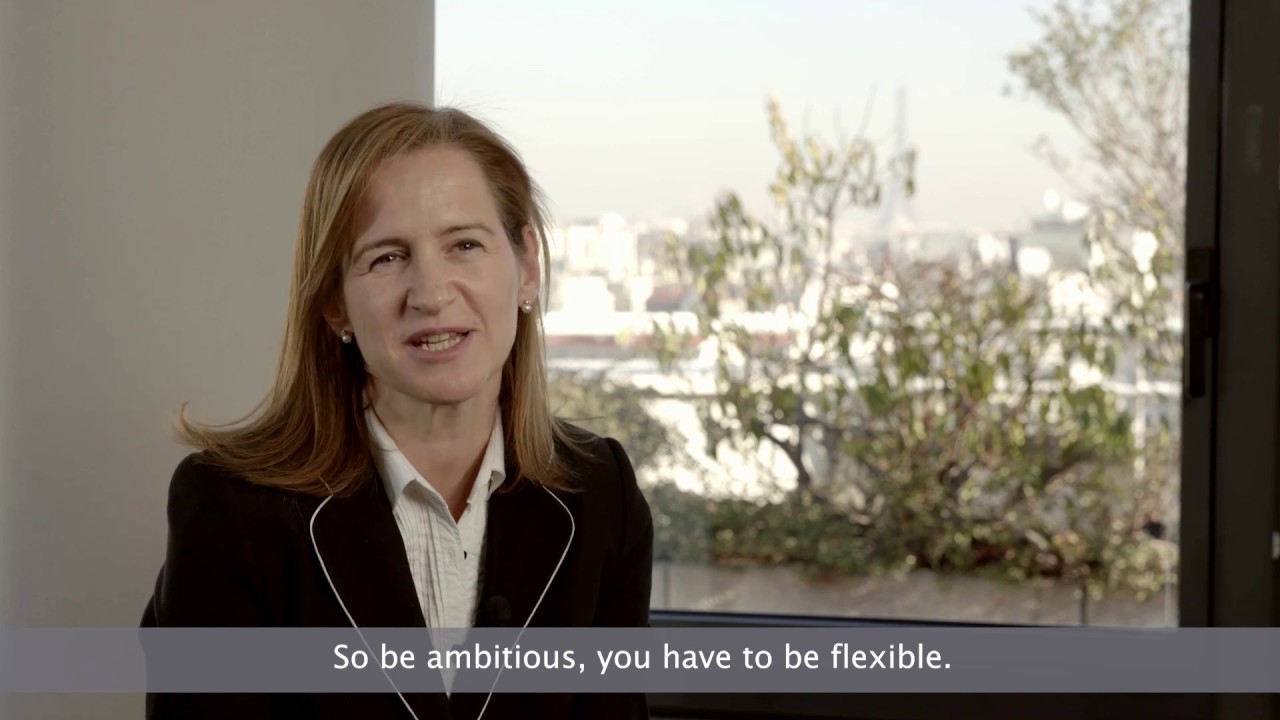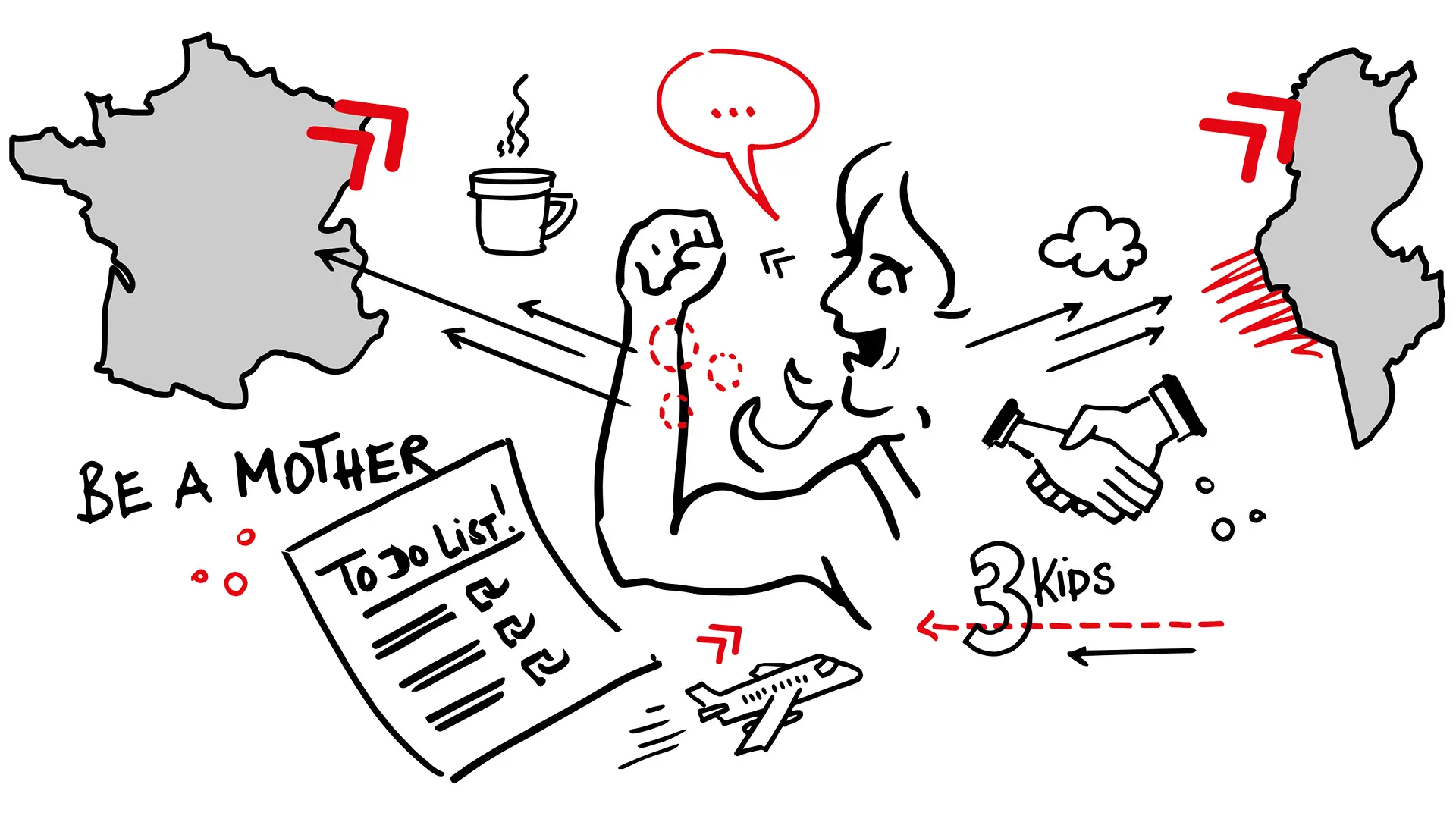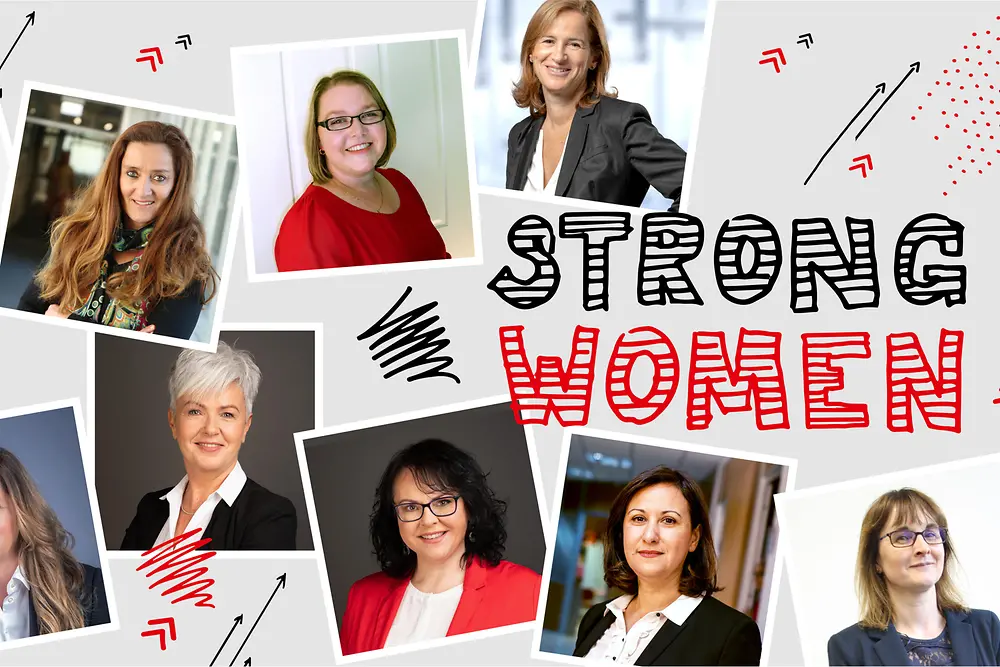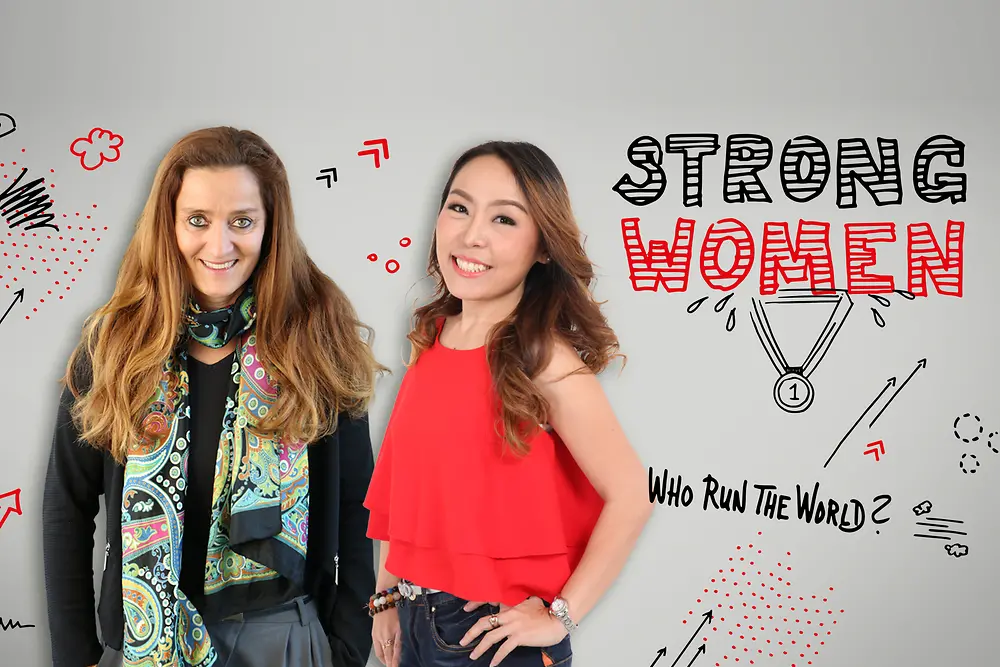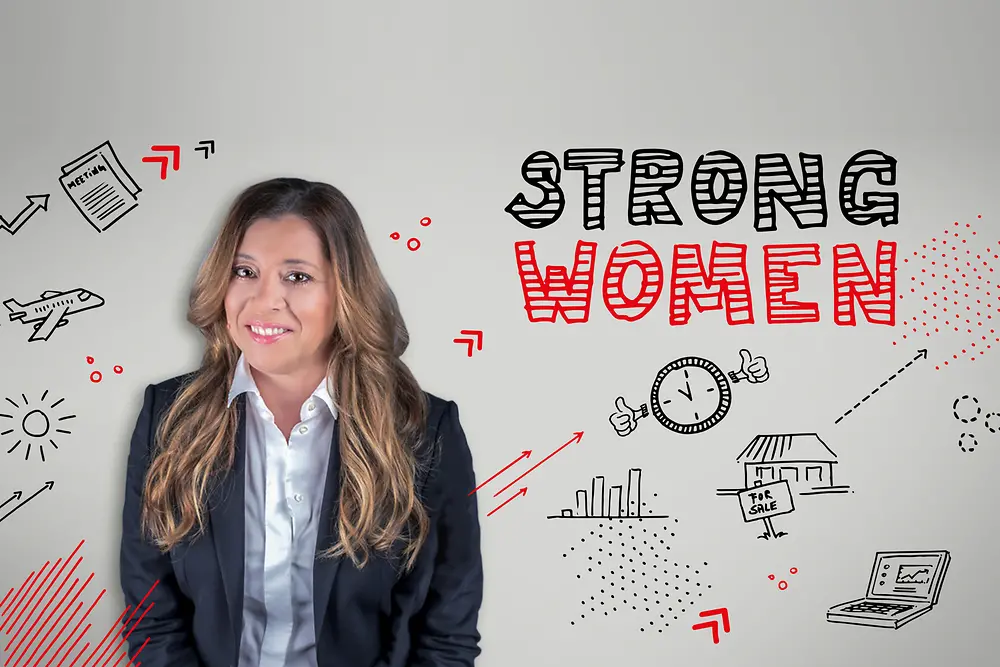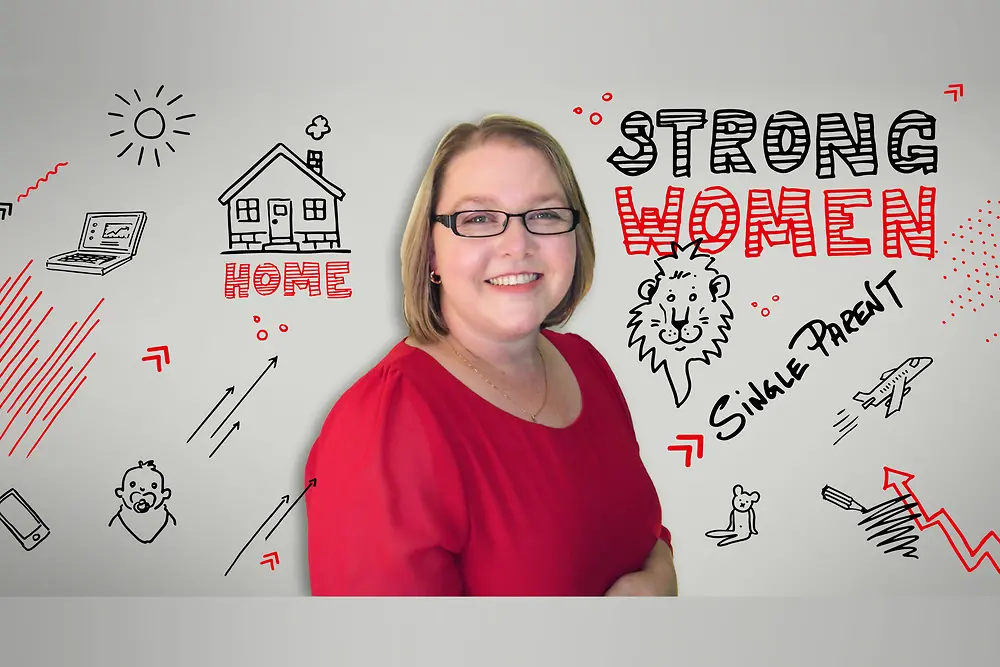Taking care of business: Balancing priorities at home and at work
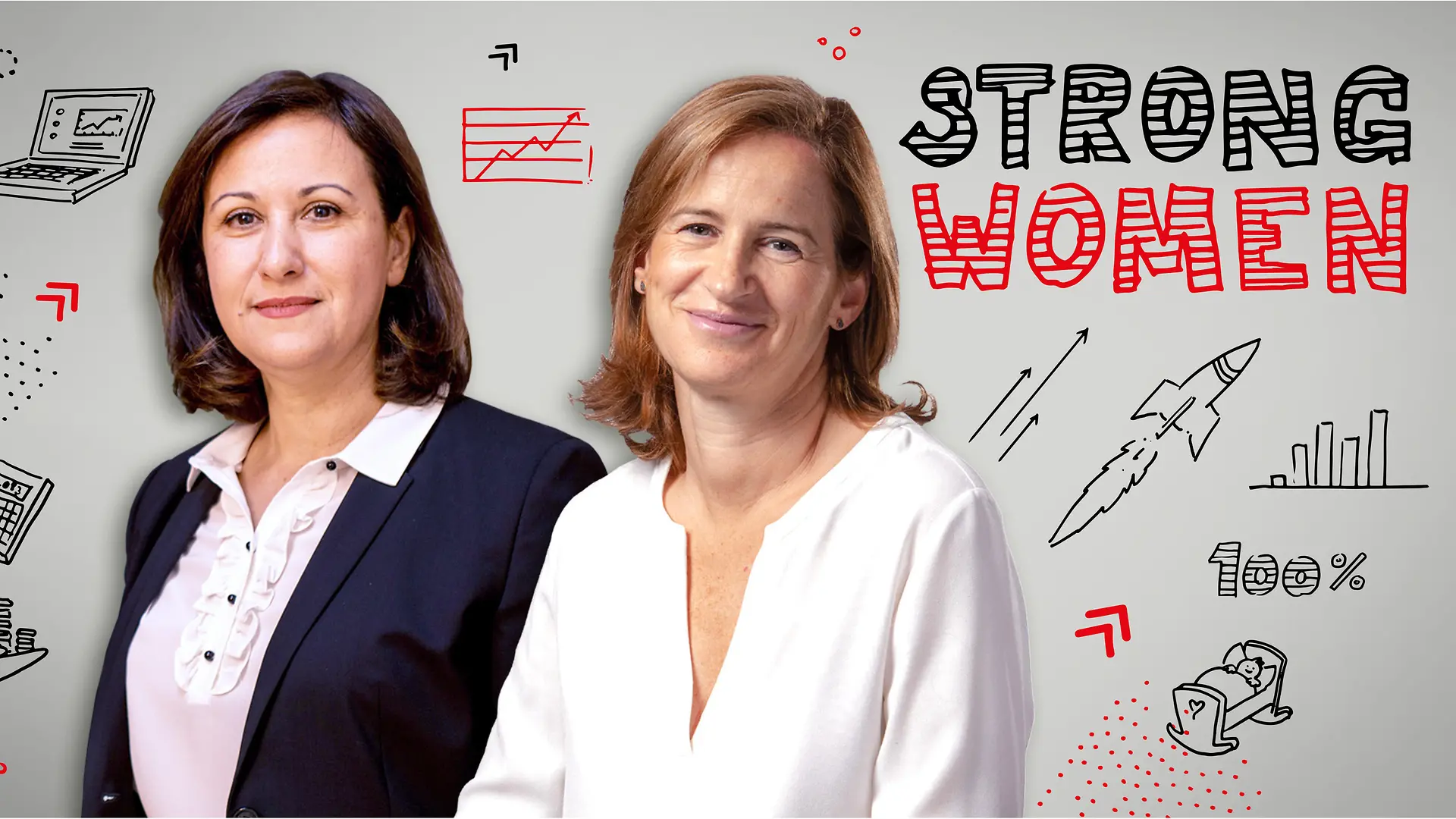
Amélie Vidal-Simi and Soulef Karoui have never met, but many parallels can be drawn between their two lives. Both women represent Henkel as Country Presidents, Vidal-Simi in France and Karoui in Algeria and Tunisia. Both of them also have children, and they both say the same thing: having a family and having a career are not mutually exclusive – as long as you set the right priorities.
Everything could have been very different. On the same day when Amélie Vidal-Simi found out that she was pregnant with her third child, her boss offered her the position of Sales Director in the Laundry & Home Care business unit at Henkel France. It was an exciting and multifaceted opportunity and offered recognition for her performance in her previous role as Key Account Manager. It was also a very symbolic move because no woman had ever held this position before. Unfortunately, she thought, it was an impossible one at this stage in her life. Her boss, whom she immediately informed of her pregnancy, agreed. Vidal-Simi went home, slightly disappointed but convinced that she had done the right thing. The turning point came the following day, when her boss called her in for another talk.
So, she took the job. Vidal-Simi says she went into this new challenge with an open mind. She made the most of the time before her maternity leave to get to know her team better. Four months after the birth of her son, she was back in the office. Many of Vidal-Simi’s coworkers, especially her female colleagues, have felt inspired. They saw it as a real-life signal, an example of balancing work and family life within the company. “My capacity to manage both is something I’m proud of,” says Vidal-Simi.
She enjoys her work: the more varied the job, the better. Indeed, managing sales wasn’t the final destination on her career path. Today she is both President of Henkel France and General Manager of Adhesive Technologies in France and Benelux.
Of course, childcare has been a challenge for her since traveling is a big part of her job. Her children are now young adults and no longer need constant supervision, but when they were younger, Vidal-Simi had help from a nanny. “Knowing that my children were well cared for gave me a sense of security. I was able to dedicate myself fully to my work during the day, without worrying about how things were going at home,” she recalls. Finding the right balance between her family and her job is a priority – and always has been.
Being authentic
Is being the boss – a woman in the top management – a major challenge? According to Vidal-Simi, the culture at Henkel is very open. She never felt like she had to shatter the glass ceiling. Great performance is recognized in women and men alike, she says. Of course, a few situations have stuck in her memory, including meetings with external business partners in which she was the only woman at the table. You need to have self-confidence, especially in those moments, she says, but you shouldn’t change who you are. “There are two things that a woman should avoid: first, playing on the fact that she’s a woman. Second, trying or pretending to ‘act like a man’”, Vidal-Simi contends. She believes that authenticity is particularly important in leadership roles.
Setting priorities
“Business executive and family manager” – many parallels exist between the two, she says. In no other situation is it so important to set precise goals, lead by example, make decisions quickly and communicate clearly, then when you are dealing with children... “I have always thought that the key point is setting priorities and hold them,” says Vidal-Simi. “As a mother, I’ve learned to save my energy for truly valuable and value-creating activities. That has also helped me in my work.”
Vidal-Simi believes it’s equally important to “take some time to breathe” once in a while. “I once received an excellent piece of advice: there needs to be a balance between time at work, time with the family and time off – each of these deserves sufficient room in your life, but none should end up taking over, unless exceptional circumstances call for it. Weekends belong to me and my children. We do lots of things together, and I always try to use these moments to create memories for all of us. I want to – and do – enjoy every day of my life.”

THREE QUESTIONS TO AMÉLIE
What was the best career advice you’ve ever received?
When I was pregnant and I was concerned that I will not be able to do everything, my boss told me “Your objective should not be to work more. You have 100% capacity and the key decision is how to allocate this 100% capacity between your priorities.”
What value is your top priority?
Being people focused: support, challenge, develop, accompany, recognize, give trust, listen actively. I think it is where I can really create additional value.
If you could have one superpower, what would that be?
To extend the length of days 😉
Soulef Karoui: Fighting the routine
If there’s one thing that Soulef Karoui cannot stand, it’s a routine. “Whenever I got bored, I would always look for new challenges,” she says. She has already managed HR departments, been in charge of legal affairs and procurement, worked for industrial companies as well as in the telecommunications and service industries.
“This broad experience is very useful to me in my current job,” she says. Karoui has been working for the Group for the last 10 years – despite the fact that she initially turned down the job at Henkel. When a headhunter contacted her in 2008 about the position as Head of Finance for Henkel in Algeria, she declined after thinking about it long and hard. Karoui, a native Tunisian, was drawn to the novelty and excited about the challenge but moving to Algeria was out of the question for the mother of one at the time. One could say that she missed an opportunity – or that it was fate. Indeed, less than two months later, another headhunter contacted her about the same position, but this time in Tunisia. She applied and got the job. “At Henkel, every day is different. I never get bored here,” she says. Karoui turned the job into a career. In 2015, she became Country President and has been representing Henkel in Tunisia ever since. Shortly thereafter, her journey brought her to Algeria: in addition to her existing role, she took on the position that she had turned down almost 10 years previously. “I was at a different stage in my life – ready for a new challenge.” Today, she also represents the Group as Country President in Algeria. It’s a broad mission, which requires huge amounts of flexibility and energy.
According to Karoui, she inherited her drive from her parents. “They have supported me unconditionally. Thanks to them, I learned to trust my intuition,” she says. Family is very important to her. Her husband, she says, helped her to move up in her career and had her back every time she had to stay late at the office. Their daughter is an adult now. Karoui can barely contain her pride when she talks about her: “She is very independent. When she was 13, she said to me: ‘Mom, if you have to work over the holidays, I’ll just meet up with my friends.’ That’s when I knew she had grown up,” she recalls. To this day, mother and daughter have remained very close. “I may not have been home as often as other mothers,” says Karoui. “But I learned to make the most of the time I had with my family.”
Work-life balance as a basis for success
Work-life balance is not just a buzzword for Karoui: it’s a priority in her life and in her job as a manager.
Flexibility, organizational talent and excellent time management are key in Karoui’s position: the working week begins on Sunday in Algeria and ends on Friday in Tunisia. She travels a lot, commuting between Tunis and Alger. Her constant companion is a handwritten to-do list, which she updates every morning. She has to make decisions quickly – or allow her team to make them on its own. She has to work through the items on her list or find the right person to delegate them to. She also needs to show a great deal of empathy: “I have to put myself in other people’s shoes and see things from their perspective,” she explains.
Ladies, dare to ask!
When it comes to empathy, women may have a natural advantage over men. That, however, is the only difference Karoui experiences in her daily work as a female executive. “I don’t think I had to prove anything to anyone just because I’m a woman. Things are different in society, which expects women to fulfill certain roles, but it was never an issue for me,” she says, adding that this may be owed to the fact that she never doubted her own capabilities. That is also the advice she wants to pass on to other young women: “Trust in your own competence. Never censor yourselves. If you want something, ask for it – and don’t be afraid to leave your comfort zone, because that’s where success begins.”

THREE QUESTIONS TO SOULEF
What was the best career advice you’ve ever received?
Early in my career, I was panicking in a difficult situation when my boss said: “A problem is not a problem until it actually happens!” Since then, I apply this motto with my team: First de-dramatize, second reassure and third support to find the appropriate solution.
What value is your top priority?
Authenticity. We are who we are. Techniques can help us to be more efficient, to better manage conflicts, or to better communicate. But our values make us the leaders we are, and authenticity creates an environment of trust that unites people and creates engagement.
What does “womanhood” mean to you?
A certain “pugnacity”, resistance to pressure, emotional intelligence – but above all: an ability to support and make change. I think that the woman who engages herself, whether professionally, politically or in social life, often does it in order to build something sustainable and to create value.

